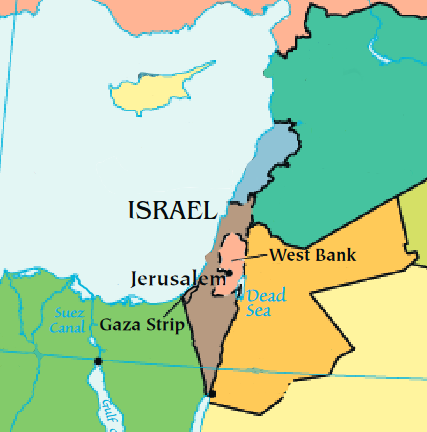Conflict has continued to escalate between Palestine and Israel since Hamas attacked Israel on Oct. 7. Anne Cubilie, professor in the English department who used to work at the United Nations in humanitarian response, said this was probably a massive intelligence failure by Israel and its army.
“The U.S. State Department has designated Hamas a terrorist group in 1997. The European Union and other Western countries also consider it a terrorist organization,” as reported by AP News
As reported by the New York Times, during the Oct. 7 attack, Hamas used drones to destroy towers used for service and communication. Hamas then blew down openings in the border, which allowed 200 Hamas members to pass through the border, then 1,800 members later.
“They overwhelmed the system in a variety of ways,” Barbara Ann Rieffer-Flanagan, professor of political science, said.
During the attack, it is estimated that over 1,400 people were killed and around 150 people were taken hostage by Hamas, as reported by CNN.
Israeli Prime Minister Benjamin Netanyahu’s government has been trying to take certain controls away from the Israeli Democratic government. Cubilie said this caused massive demonstrations in Israel.
“A lot of army personnel threatened to leave the army and so I think the army has also been very distracted by that,” Cubilie said.
Another possible reason for Hamas was the talk of normalizing relations between Saudi Arabia and Israel, according to Cubilie.
“They’re kind of seen as leaders of the Muslim world in many ways and for them to normalize relations with Israel … the ground would have shifted completely,” Cubilie said.
As reported by CNN, in response to the Hamas attack, Israel struck “what it says are Hamas and Islamic Jihad targets in Gaza … between October 7 and 12, Israel dropped 6,000 bombs on the densely inhabited territory.”
On Friday, Oct. 13, Israel dropped leaflets on people living in the Northern Gaza area, advising around 1.1 million people to evacuate, as reported by CNN.
ABC News reports that “Palestinian authorities said at least 2,329 people have been killed and another 9,714 have been injured in Gaza due to Israeli retaliatory attacks.”
Cubilie said it is impossible for 1.1 million people to relocate, which will lead to a humanitarian disaster.
“Israel has closed the borders,” Cubilie said. “They have shut off water, food and fuel, so people have nowhere to go. They’re going to end up in the streets.”
President Joe Biden issued a statement of support for the state of Israel. Additional assistance from the U.S. depends on what happens in the House of Representatives.
“They can’t vote at the moment because there’s no speaker of the house because the former speaker of the House of Representatives was ousted last week,” Rieffer-Flanagan said.
A glimpse into the history of Palestine and Israel
The state of Israel came into existence in 1948 and Arabs living there at the time did not accept it.
This started the first war. “The war ended in 1949 with Israel’s victory, but 750,000 Palestinians were displaced, and the territory was divided into 3 parts: the State of Israel, the West Bank (of the Jordan River), and the Gaza Strip,” as reported by the Council on Foreign Relations.



